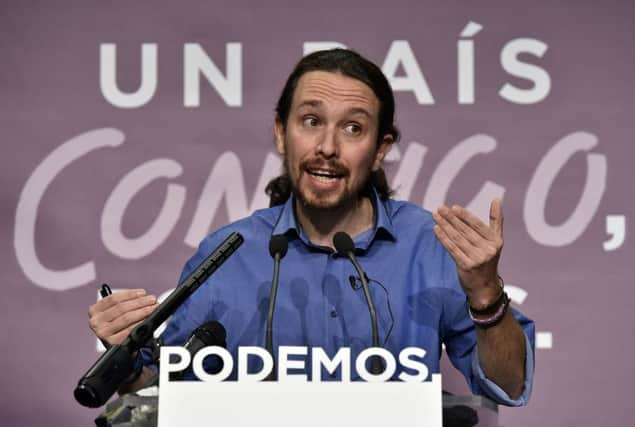Four parties seek to form Spanish government


The results of Sunday’s vote, which saw no party win a majority in the 350-seat Madrid parliament, sent jitters through the Spanish stock exchange, which was down 2.5 per cent when other European markets were modestly positive.
Mr Rajoy’s ruling conservative Popular Party came first in the general election, winning 123 seats but falling far short of the 176 needed for a majority and losing a third of the 186 seats it won in 2011.
Advertisement
Hide AdAdvertisement
Hide AdMr Rajoy, seeking a second term, said he would “try to form a stable government” but has no immediately obvious partner to do that.
The Socialists came second with 90 seats and could seek a coalition with other leftist groups.
Two newcomer parties burst on to the scene, capitalising on many voters’ disenchantment with high unemployment, corruption scandals and the political status quo. The far-left Podemos group gained 69 seats for third place while the centrist, business-friendly Ciudadanos party won an influential 40.
The Socialists and Podemos yesterday ruled out voting in favour of Mr Rajoy. Ciudadanos, which has repeatedly said it will never vote for Mr Rajoy, said that at most it would abstain so the Popular Party could try to form a minority government given that it has the most seats.
“Even if a stable coalition partnership emerges, the negotiations are unlikely to be swift, which implies that both consumers and businesses face a prolonged period of uncertainty,” said RBC Capital Markets. “This could weigh on business investment – precisely at a time when the Spanish economy is becoming increasingly reliant on domestic demand to fuel the recovery.”
Mr Rajoy’s government is credited with dragging Spain back from the abyss and returning it to growth. But its public finances remain strained and unemployment hover around 20 per cent.
Spain did not need a bailout like others in the eurozone, such as Greece and Portugal, but the Popular Party government has been pursuing tough budgetary policies and wide-ranging reforms.
Markets fear the election results may reduce the Spanish impetus for austerity and reform.